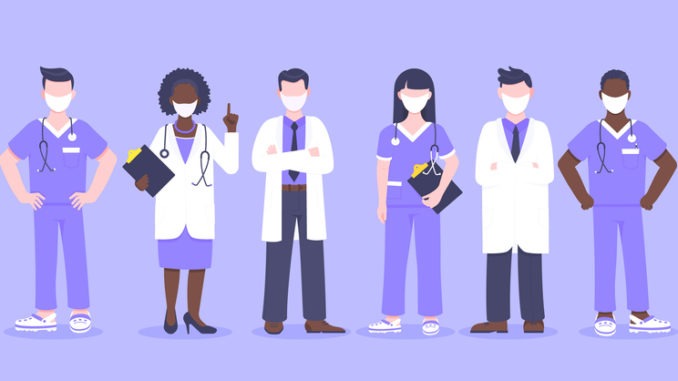
“It’s vital that, as councillors, we use every opportunity to scrutinise the provision of healthcare services, and ensure that we are speaking up for those for whom it’s not working.” Green Councillor Rosi Sexton outlines the problem with accessing GP services in her constituency
CREDIT: This is an edited version of an article that originally appeared on Green World
The COVID-19 crisis has changed many aspects of our lives in a short space of time – and this includes the way health services are provided. Over the last few months I’ve had more emails and ‘phone calls about doctors’ surgeries than about any other single issue since becoming a councillor.
The story of what’s happened is complicated. Healthcare professionals have been working hard under very difficult circumstances, but there were inevitably going to be problems when a system already under strain was put under additional pressure in an emergency.
Prior to COVID there had been a lot of talk behind the scenes about moving towards a system where more routine GP care is provided remotely, through telephone or video appointments, with people being seen by a doctor in person only when necessary for a physical examination or treatment. This has been controversial, and has both advantages and disadvantages.
Sometimes a quick telephone appointment is an easy way to contact the doctor for something straightforward. When it works well, it’s convenient for both staff and patient; as one person told me “It’s so nice not having to drag two small children with me to sit in a waiting room for a routine follow up”.
Yet it doesn’t always work so well. Some people find communicating by ‘phone or video call much harder, some miss the reassurance of being in the same room as their doctor, and body language and other important visual clues can be more easily missed. In an ideal scenario, both remote and face-to-face appointments could be offered, as appropriate, to give patients the best of all worlds.
Changes rushed through
Under normal circumstances, these changes might have happened gradually, over a period of years, and would have involved consultation with the public along the way but, when COVID-19 came along, there was an urgent need to reduce face-to-face contact in order to protect both patients and staff and emergency changes were rushed through quickly. Although there were some good reasons for doing this, in many places, the transition hasn’t gone smoothly.
In our own area, patients have been facing long telephone queues – sometimes well over an hour – just to speak to a receptionist, and struggling to get prescriptions or appointments. In-person appointments have been taking place only at a small number of surgeries, requiring unwell people to make longer journeys, sometimes by taxi or public transport. I’ve heard many stories which have been extremely concerning, and local people have been telling me that they feel lost, abandoned by their doctors, and not sure where to go for help.
Worrying too is the prospect that this could now become the ‘new normal’. There has been talk in meetings about needing to ‘manage patient expectations’ – which is sometimes code for downgrading a service. With health services having been starved of funds over a decade of austerity, and dealing with a national shortage of GPs, there’s a real danger of that happening.
Although local authorities do not have responsibility for the provision of GP services, for many people, councillors are the local representatives they can come to when they’re not sure where else to turn. Through our local Health Scrutiny Boards we have the ability to examine, and ask questions about, our health services, and there are various ways for us to raise important issues with our local clinical commissioning group (CCG). It’s vital that councillors use every opportunity to scrutinise the provision of these services, and ensure that we are speaking up for those for whom it’s not working. On a national level, many of our current problems stem from under-investment in our vital public services, and we should continue to highlight this, and to call for improvements


Be the first to comment